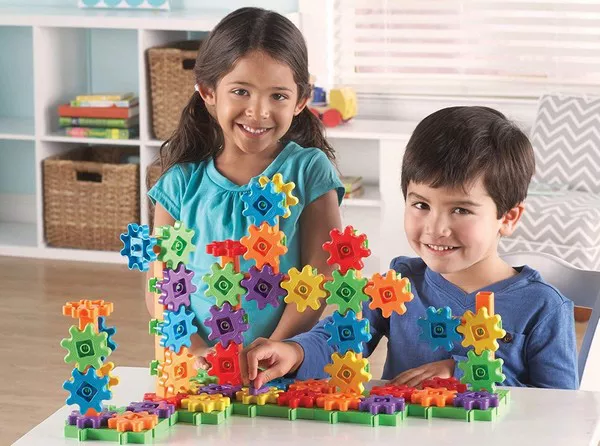In the intricate tapestry of human development, the needs of a child form the cornerstone upon which their future success, happiness, and resilience are built. Recognizing and meeting these needs is not merely a matter of convenience; it is a profound responsibility and a crucial investment in the well-being of future generations. Among the myriad of needs that a child has, certain fundamental pillars stand out as indispensable for their healthy growth and development. These include secure attachment, unconditional love, acceptance, emotion coaching, routines, responsibility, positive discipline, and the presence of good role models. Each of these components plays a vital role in shaping a child’s sense of self, their relationships, and their ability to navigate the complexities of the world around them.
Secure Attachment:
Infants and children need a secure attachment to their parent or caregiver. Forming a secure attachment creates a foundation for healthy parent-child relationships. It leads to resiliency, better physical and mental health, especially during the first three years of a child’s life when significant brain development occurs. Secure attachment is the bedrock upon which all other aspects of a child’s development rest. It is the deep and enduring bond between a child and their primary caregiver that provides them with a sense of safety, trust, and security in the world. When a child feels securely attached, they are more likely to explore their environment, form healthy relationships, and develop the emotional resilience needed to navigate life’s challenges.
Unconditional Love:
Children require unconditional love without strings attached. Express love freely, regardless of circumstances or achievements. Unconditional love provides security, high self-esteem, and a sense of acceptance. Love is the lifeblood of childhood. It is the nurturing force that sustains a child through the ups and downs of life, offering them a safe harbor in which to grow and thrive. When children experience unconditional love, they develop a deep-seated belief in their own worthiness and value as individuals, regardless of their accomplishments or failures. This unwavering love serves as a guiding light, illuminating the path towards self-acceptance, resilience, and emotional well-being.
Acceptance:
Children need to feel accepted by their parents. Acceptance of their identity, family, and culture is crucial. Avoid withholding affection based on discipline or achievement. Acceptance is the cornerstone of a child’s sense of belonging and self-worth. When children feel accepted for who they are, they are more likely to embrace their unique qualities and talents, leading to greater confidence and self-esteem. Acceptance also fosters a deep connection between parents and children, creating a supportive and nurturing environment in which children can thrive.
Emotion Coaching:
Parents should guide children in understanding and managing their emotions. Teach emotional intelligence, empathy, and coping strategies. Emotions are an integral part of the human experience, and learning to navigate them effectively is essential for healthy development. Emotion coaching involves helping children recognize, understand, and express their feelings in constructive ways. By providing children with the tools they need to manage their emotions, parents can empower them to build strong relationships, make sound decisions, and cope with life’s challenges in a healthy manner.
Routines:
Predictable routines and boundaries help children know what to expect. Consistent schedules provide stability and reduce anxiety. Routines are the scaffolding of childhood, providing structure and predictability in an otherwise uncertain world. When children have consistent routines, they feel safe and secure, knowing what to expect from day to day. Routines also help children develop important skills such as time management, self-discipline, and organization, setting them up for success both in childhood and beyond.
Responsibility:
Children benefit from age-appropriate responsibilities. Chores and tasks build a sense of competence and self-worth. Responsibility is the cornerstone of independence and self-reliance. When children are given age-appropriate tasks and responsibilities, they learn valuable life skills such as accountability, perseverance, and problem-solving. These skills not only contribute to their personal growth and development but also prepare them for the challenges and responsibilities of adulthood.
Positive Discipline:
Set clear rules and consequences. Use positive reinforcement and gentle correction. Discipline is an essential aspect of parenting, but it is often misunderstood. Positive discipline involves setting clear expectations and boundaries while also providing support and encouragement. By focusing on teaching rather than punishing, parents can help children learn from their mistakes and develop the self-control and decision-making skills needed to make positive choices in the future.
Good Role Models:
Children learn by observing adults. Be a positive role model in behavior, communication, and values. As the saying goes, “actions speak louder than words.” Children are keen observers of the world around them, and they learn a great deal by watching the behavior of the adults in their lives. By modeling kindness, empathy, and integrity, parents can instill these values in their children and set them on the path towards becoming caring, responsible, and compassionate individuals.
In conclusion, the greatest need of a child is multifaceted, encompassing elements of emotional security, love, acceptance, guidance, structure, and positive role modeling. By recognizing and addressing these fundamental needs, parents can lay the groundwork for their children’s success, happiness, and well-being both in childhood and beyond. As caregivers, educators, and members of society, it is our collective responsibility to ensure that every child has the opportunity to flourish and reach their full potential.


